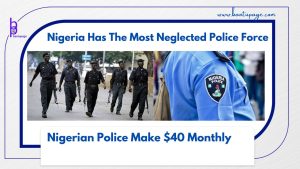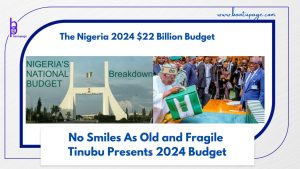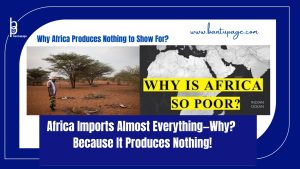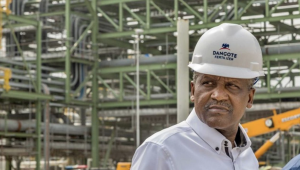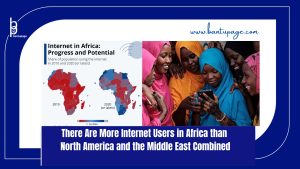
Poverty Continues to Soar, Foreign Companies Leave, Motorists Pay Additional N1,000, and a President Who Claims to Work Day and Night.
Introduction
Nigerians suffered under Buhari’s APC, a government with no vision that ruled for eight years like a quasi-dictator. It brought hardship to the masses like never before in the slightly over a century since this concatenation of Northern and Southern Nigeria became a united country. FDI (Foreign Direct Investment) has always flowed into Nigeria, albeit slowly at times, but it never decreased to the level seen under former President Muhammadu Buhari. The Republic of Congo, with just under six million people, had more FDI between 2020 and 2022 than two hundred and twenty million people in oil-rich Nigeria. That was telling.
Motorists, after getting punched in the face with a triple-fold petrol price hike, are to cough out another N1,000 annually. In this article, we will touch on the sweep of poverty pervading Nigeria, foreign companies threatening to leave behind the 40% energy price increase coming in July, and a president who claims to be working day and night.
Poverty in Nigeria
Nigerians have stumbled further into poverty; four million people have been added to the already 63% (140 million) who were already living in multidimensional poverty, with 7 million queuing up to roll in, says The World Bank. It would seem President Tinubu had no plan in place to soothe the hardship FSR (Fuel Subsidy Removal) would inflict on Nigeria, because if he did, the removal process would have been carried out in a tit-for-tat manner where the populace would not have to notice. FSR was long overdue; explained properly, even a layperson would support its removal, but announcing its discontinuation like a teenager throwing a fit was not presidential.
President Tinubu has not come out and sold his plans to Nigerians; the signing and dictating of laws through pen and paper at his air-conditioned office is not what Nigerians need. A president should be a role model. If he is a genius as characterised by his supporters during the campaign season, a frequent breakdown by explaining in a language Nigerians can understand, connecting with them, and travelling around the country introducing and selling your agenda in layman’s terms will do so much good in soothing the expectations of Nigerians. No one knows what his next signature will be; his concern for the poor seems very lacking.
A law can be good, but how you approach that law is the thin line between its effectiveness and failure. The latter is slowly becoming likelier. How much have we saved from the fuel subsidy? When exactly was the last subsidy paid? Was this done retrospectively, and if so, were there any refunds? What are your plans with the savings from the FSR? None of these have been clearly sold to Nigerians, who live under the hardship of such impulsive decisions taken by the guy at the top.
Foreign and multinational Companies Threaten to Leave Nigeria.
Nigerians are barely surviving the FSR abruptly inflicted on them; another 40% increase on energy prices is just about to strike straight through an already poor people like a stroke. On average, Nigerians pay one of the highest energy prices despite being one of the poorest countries on earth and home to the poorest humans alive; this is unacceptable. Either President Tinubu lacks sympathy or he is void of leadership skills. FDI into Nigeria dropped 80% under his pal, former President Buhari, whose nonchalance and arrogance wreaked havoc on the economy and ignited ethnic division that may take decades to heal. President Tinubu is beginning to appear like a man with zero empathy.
Foreign companies have threatened to leave Nigeria if nothing is done to assuage the 40% increase in energy prices, which is to take effect on July 1, 2023. Evidently, such an increase will make the environment unsuitable for business. One of the keys to generating government revenue through taxation is to create an enabling environment for businesses to thrive, which will in turn increase FDI. Has our new president even considered this? Is he aware that FDI into the country has fallen to record levels?
Motorists to Pay N1,000 Annually for Proof of Ownership
Usually, governments can introduce sudden fees on schemes designed to generate funding for other beneficial schemes in the long term. However, as elaborated earlier in this article, President Tinubu’s proclivity to sit in his air-conditioned office and sign laws is not the way to connect with Nigerians. It may well be that the N1,000 from motorists has a good agenda in place, but as president, it is your responsibility to sell that agenda to your people in a language they understand, and the system’s transparency should trump its implementation.
Nigeria is a country of many ethnicities whose identities take precedence over nationhood; as the president, connecting with these ethnicities in a way that shows objectiveness in how you approach the sudden changes that are taking place within a month should be as important, if not more.
Tinubu: Working Day and Night for the Betterment of Nigeria
It is fair to say that the “day and night” bit was a mere figure of speech. A man who dozed off at every opportunity during the campaign season could not have developed diurnal and nocturnal abilities overnight. Still, without undermining the necessity of some of the new laws introduced, albeit not special, as already emphasised, there is a lack of connection between the president and the people.
For example, the Student Loan decree introduced earlier was good on paper but unattainable in reality. The tendency of feigning to do something is spawning the similitude of a contrived effort to portray the president as a man with good intentions. In other words, President Tinubu wants to appear like a hard-working president rather than be a hard-working president. Nigerian love has always been fleeting; we may forget easily, but we never love unremittingly. We will toss even the most precious role model when the love sours.
Conclusion
President Tinubu must work with his employers, the Nigerian people. Contrasting his policies so far against his manifesto is hinting that he did not pen the manifesto, nor has he read it in detail. Before introducing a law, especially one with the potential to impact the livelihood of your people, explain to them why you think the law is necessary, how it will benefit them in the long term, and what alternatives have been made to assuage the unbearable hardship such a law is likely to inflict on the masses. President Tinubu’s new president’s advantages or honeymoon will run out quickly if he continues in this signature therapy that most Nigerians have no clue how and if any such drastic induction of endless laws will do to alleviate the poverty level pervading every corner of the country.
Writers: – Ikechukwu Orji –
